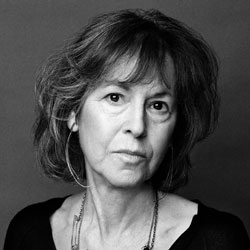A cool wind blows on summer evenings, stirring the wheat.
The wheat bends, the leaves of the peach trees
rustle in the night ahead.
In the dark, a boy’s crossing the field:
for the first time, he’s touched a girl
so he walks home a man, with a man’s hungers.
Slowly the fruit ripens—
baskets and baskets from a single tree
so some rots every year
and for a few weeks there’s too much:
before and after, nothing.
Between the rows of wheat
you can see the mice, flashing and scurrying
across the earth, though the wheat towers above them,
churning as the summer wind blows.
The moon is full. A strange sound
comes from the field—maybe the wind.
But for the mice it’s a night like any summer night.
Fruit and grain: a time of abundance.
Nobody dies, nobody goes hungry.
No sound except the roar of the wheat.
Notes on the Poem
Louise Glück's "Abundance" is a lush celebration of life and the sense of plenty, buoyed subtly but powerfully by layers of sensory pleasures. We are all feeling incredibly celebratory at the news this past week that Glück has been recognized as the recipient of the 2020 Nobel Prize in Literature. A vibrant selection from this very worthy, newly minted Nobel Laureate is just what we need! In "Abundance", Glück has all five senses covered, either captured outright: "the leaves of the peach trees rustle in the night ahead" or beautifully, tantalizingly and vividly suggested: "Slowly the fruit ripens— baskets and baskets from a single tree so some rots every year" Can you find an example or suggestion for all of sight, smell, sound, touch and taste? As the poem burgeons with life and growth, it only just teeters but does not yet turn to slowing, decay and death. In fact, it states confidently: "Nobody dies, nobody goes hungry." The only clue, perhaps, is the mention of rot - which at this juncture is a byproduct of all the abundance, not of any sense of decline.
